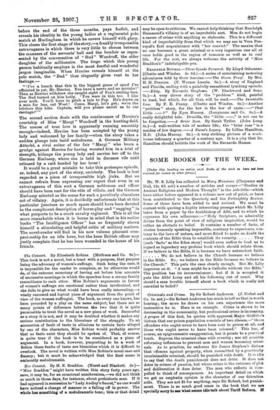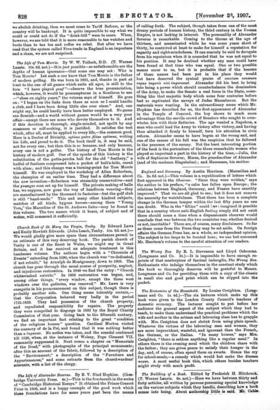Criminals and Crime. By Sir Robert Anderson. (J. Nisbet and
Co. 5s. net.)—Sir Robert Anderson has much to tell us that is worth hearing ; the more he draws on his own experience the more instructive he is. Here is an example. Crime is shown to be decreasing in the community, but professional crime is increasing. A propos of this fact, he quotes with approval Major Griffiths's dictum that our prison population consists of two classes,—" those offenders who ought never to have been sent to prison at all, and those who ought never to have been released." This has, of course, an epigrammatic exaggeration, but it points to a practical truth. Repress the criminal class with severity; use all possible reforming influences to prevent men and women becoming crimi- nals. As to practice, ho endorses Sir James Stephen's dictum that offences against property, when committed by a practically irreclaimable criminal, should be punished with death. It is idle to say that the death punishment does not doter. It does not deter in crimes of passion, but where crime is the outcome of plot and deliberation it does deter. The man who reflects is com- pelled to think of consequences. An important detail on which we get an emphatic opinion is the character of our detention cells. They are not fit for anything, says Sir Robert, but punish- ment. There is so much good sense in the book that we are specially sorry to see what seems idle talk about Tariff Reform. It
we abolish drinking, than we must come to Tariff Reform, or the country will be bankrupt. It is quite impossible to say what we could or could not do if the " drink-bill " were to cease. When, however, we are told that it is more reasonable to tax watches and boots than to tax tea and coffee we rebel. But after we have read that the system called Free-trade in England is an imposture and a sham, we are not surprised.



















































 Previous page
Previous page